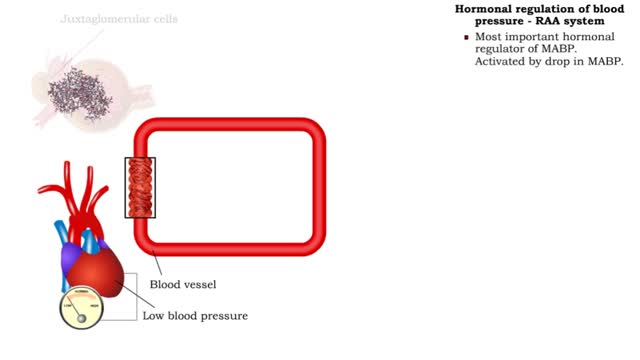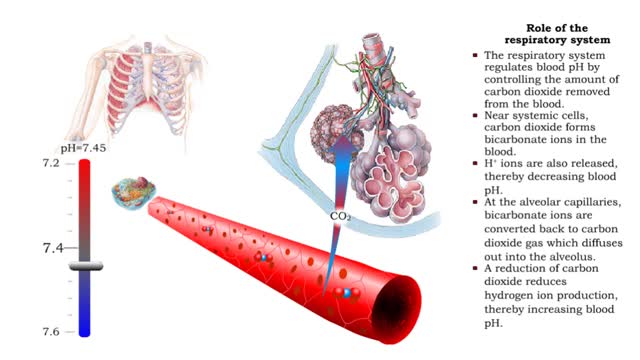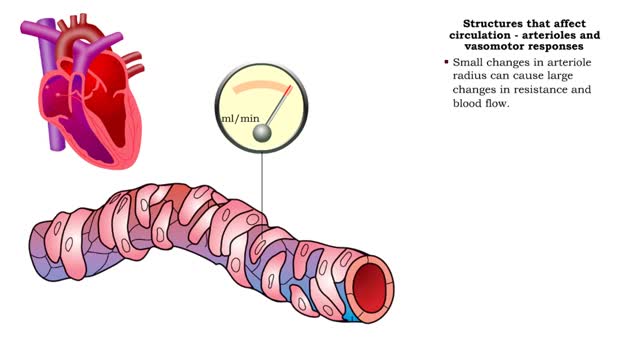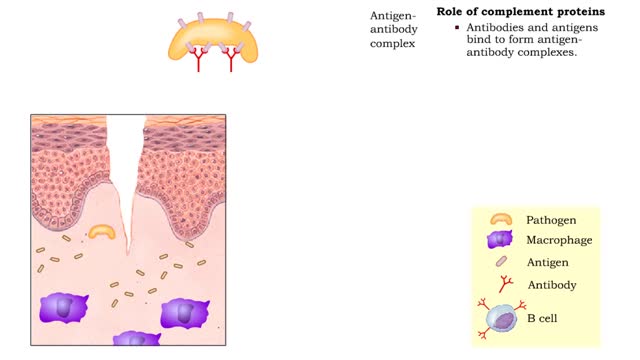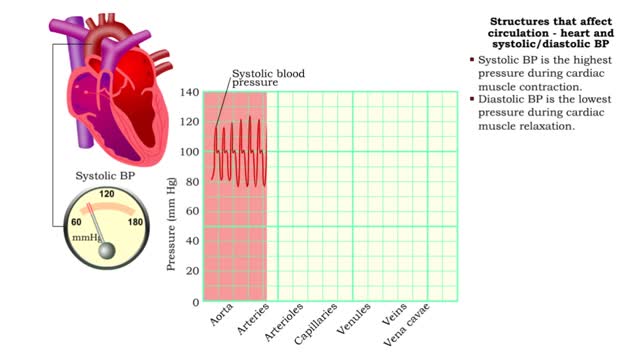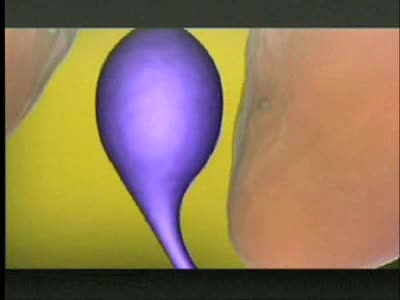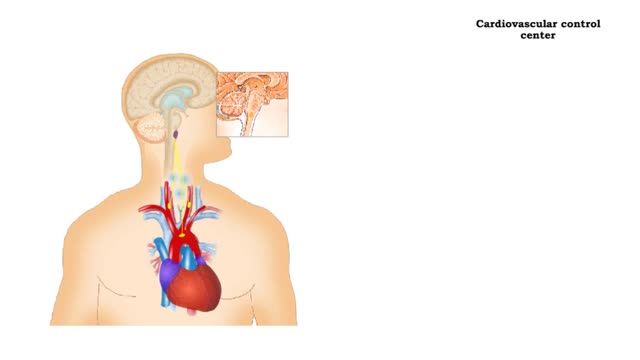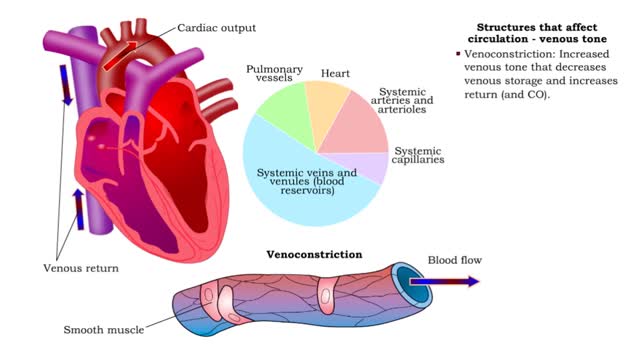Search Results
Results for: 'systemic acquired resistance'
Hormonal regulation of blood pressure - RAA system
By: HWC, Views: 11018
■ Long-term regulation of MABP is under hormonal control. • Hormones that affect blood pressure and volume: the renin-angiotensin-aldosterone (RAA) system, antidiuretic hormone (ADM), and atrial natriuretic peptide (ANP). ■ Most important hormonal regulator of MABP. Activated by drop in...
Role of the respiratory system - effect of altered ventilation rates
By: HWC, Views: 11103
• The respiratory system regulates blood pH by controlling the amount of carbon dioxide removed from the blood. • Near systemic cells, carbon dioxide forms bicarbonate ions in the blood. H+ ions are also released, thereby decreasing blood pH. • At the alveolar capillaries, bicarbonate io...
Structures that affect circulation - arterioles and vasomotor responses
By: HWC, Views: 10178
■ Small arteries and arterioles determine SVR. ■ Blood pressure drops significantly as blood passes through arterioles. ■ Decreasing arteriole radius and decreased wall elasticity are the main reasons for increased SVR. ■ Small changes in arteriole radius can cause large changes in ...
By: HWC, Views: 10312
• Non-specific and specific defense mechanisms work through the functions of complement proteins. • As soon as pathogens penetrate the physical barrier of the skin, other resistance mechanisms begin. • Cells, such as macrophages, phagocytize pathogens. • These cells increase exposu...
Structures that affect circulation - heart and systolic/diastolic BP
By: HWC, Views: 10492
• Heart generates blood pressure. • Arterioles produce resistance thereby regulating blood flow to tissues. • Veins store blood; kidneys regulate blood volume; both affect venous return and cardiac output. ■ Contractions of the ventricles determine blood pressure, which drives th...
By: Administrator, Views: 13839
Herpes simplex is a viral infection caused by the herpes simplex virus. Infections are categorized based on the part of the body infected. Oral herpes involves the face or mouth. It may result in small blisters in groups often called cold sores or fever blisters or may just cause a sore throat. G...
Negative Feedback Regulation of Blood Pressure
By: HWC, Views: 10473
stimulus • Blood pressure determines the flow of blood to and from capillaries. • Low blood pressure results in reduced blood flow. • High blood pressure can cause blood vessels to break. Baroreceptors • The aortic arch carries blood to the body. • The common carotids ca...
Structures that affect circulation - kidneys and blood volume and skeletal muscle pumping
By: HWC, Views: 11115
• Kidneys regulate blood volume and blood osmolarity via salt and water reabsorption. • Increased reabsorption increases blood volume and venous return (and CO). • Decreased reabsorption Increases urine production, which decreases blood volume and venous return (and CO). • Systemi...
By: Administrator, Views: 349
Gonorrhea, colloquially known as the clap, is a sexually transmitted infection (STI) caused by the bacterium Neisseria gonorrhoeae. Infection may involve the genitals, mouth, or rectum. Infected men may experience pain or burning with urination, discharge from the penis, or testicular pain. Infec...
Advertisement



